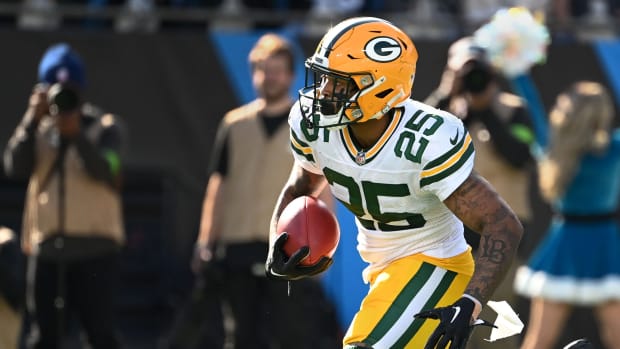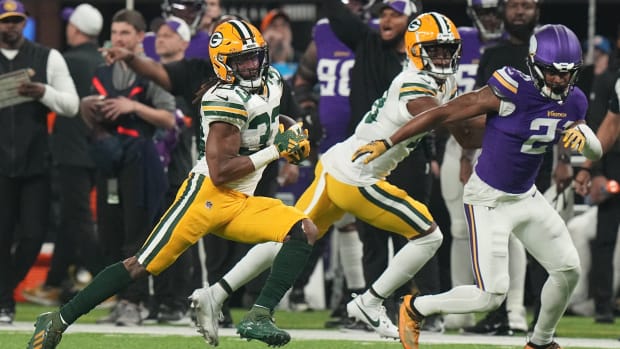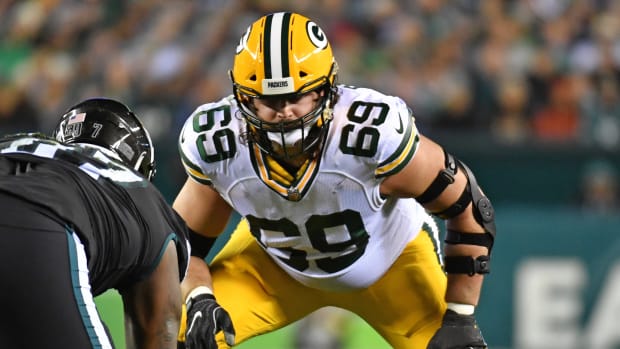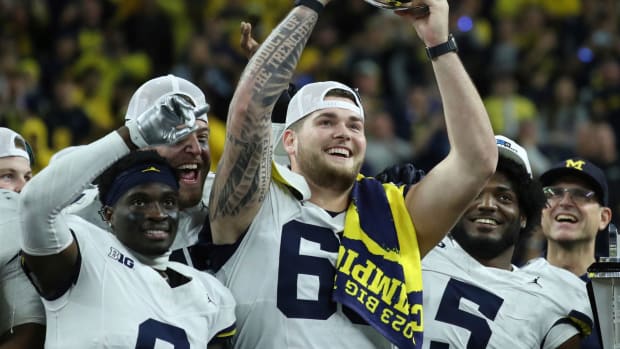Packers Stand Pat at Trade Deadline
GREEN BAY, Wis. – The cavalry is not arriving.
If the Green Bay Packers are going to make a run to the Super Bowl and win only their second championship of Aaron Rodgers’ prolific tenure, it’s going to be up to the players on the roster. Just like every other trade deadline dating to midway through Ron Wolf’s tenure as general manager, the Packers did not make any additions to the roster by the 3 p.m. deadline.
“There’s things that are out of my control and I’m going to focus on getting ready to play Thursday,” Rodgers, with an eye on a primetime showdown at the San Francisco 49ers, said on Tuesday. “If somebody is added, awesome. We look forward to working them in next week. If not, it’ll just be business as usual and we’ll move forward with the guys we got and try to find ways to keep being productive.”
If the Packers are going to play with more consistent production on offense or stop the run with any regularity whatsoever, it will be up to the current cast of characters who were good enough to power a 5-2 start but were blown off the field in the only game against a team with a winning record.
RELATED: Deadline deal critical for Niners last year
That general manager Brian Gutekunst stood pat at the trade deadline should have come as anything but a surprise. The Packers have limited salary-cap space for this season and almost none for next season, when the impact of COVID-19 on league revenue hits the financial ledger with a vengeance.
With some exceptions, the type of players made available at the trade deadline are expensive second-contract players or players on expiring contracts. The second-contract players would have been tough to fit under the cap, especially with left tackle David Bakhtiari, center Corey Linsley and running back Aaron Jones among upcoming free agents.
One player on an expiring contract who was thought to be available was Houston Texans receiver Will Fuller. However, Gutekunst apparently didn’t feel comfortable meeting the Texans’ price of a second-round pick for a half-year rental. Fuller remained with the Texans at the deadline.
“There are teams, I’m sure, that are looking at the salary cap next year, possibly, most likely, being $175 (million), which is down from this year and trying to figure out how they can fit the guys on their roster and the guys they want to add into that box,” Rodgers said.
Beyond those realities, that Gutekunst used this year’s first-round pick on a quarterback with no hope of playing this season spoke volumes. With a chance to add a much-needed prospect to a team that reached the NFC Championship Game, Gutekunst instead planned for the future by selecting Rodgers’ presumed successor. That might end up being the right thinking if Love pans out and the Packers continue their winning ways deep into the future, but it did nothing to help secure a championship for a team with plenty of talent but a couple glaring holes.
With the general manager focused on the future in April, why would he trade away a future draft pick to help with today?
For Green Bay, all the improvement will have to come from within.
On offense, that means receiver Allen Lazard’s return from injured reserve following core-muscle surgery.
“I wouldn’t say we necessarily need to [add a receiver], because I think we’ve shown what we can do,” star receiver Davante Adams said on Tuesday. “When I went down, guys stepped up and did what they had to do. Stepped up big. I wouldn’t say it’s a need. Obviously, I don’t think it’s any secret that it could help us potentially. I wouldn’t be opposed to it. It could help us. But I definitely got full faith and trust in my guys here to be able to get it done.”
On defense, it will be up to defensive coordinator Mike Pettine and the return from injured reserve of linebacker Christian Kirksey to cure a defense that once again ranks toward the bottom of the ledger in run defense.
The Packers haven’t been buyers since 1999, when Wolf acquired running back Darick Holmes a couple weeks before the deadline after Dorsey Levens sustained a broken leg.




